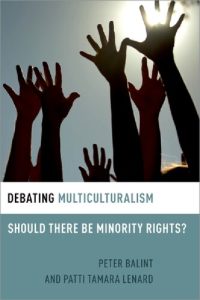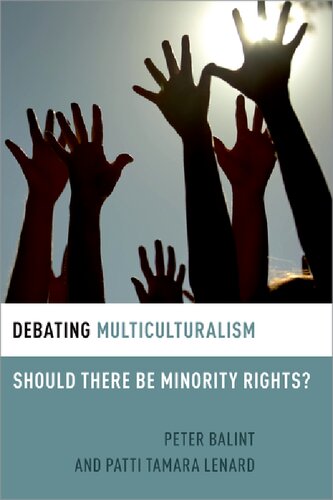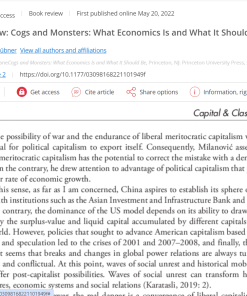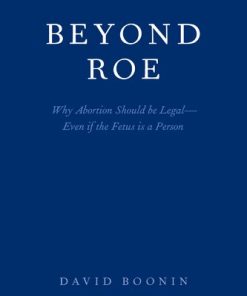Debating Multiculturalism: Should There be Minority Rights? Peter Balint
$50.00 Original price was: $50.00.$25.00Current price is: $25.00.
Debating Multiculturalism: Should There be Minority Rights? Peter Balint – Ebook Instant Download/Delivery ISBN(s): 9780197528389,0197528384,9780197528402, 0197528406
Product details:
- ISBN 10:0197528406
- ISBN 13:9780197528402
- Author: Peter Balint
Multiculturalism has become a political touchstone in many countries around the world. While many of those on the right oppose it, and many of those on the left embrace it, things are not this simple. For those who defend them, multicultural policies are generally seen as key to the fair and successful integration of minorities, many of whom are immigrants, into diverse democratic societies. For those who oppose multiculturalism, who have become part of the so-called “backlash” against multiculturalism, they are charged with generating segregation rather than inclusion, undermining national cultures, reinforcing difference, and privileging minority groups. Around the world, we see failing attempts at migrant integration, persistent religious intolerance and racial and ethnic discrimination, resurgent national minorities, emboldened majorities, permanent minorities, continuing social isolation, and increasing extremism, including in the form of white nationalism. But is multiculturalism the solution to these problems or does it just make them worse?In this for-and-against book, two prominent scholars of multiculturalism put forward different answers to this important question. While Patti Tamara Lenard argues for minority rights as both the consequence of a right to culture and a way to redress the effects of nation-building, Peter Balint rejects minority rights altogether, instead arguing for a re-imagined liberal neutrality. This theoretical disagreement plays out in real-world policy disagreement. Lenard, for example, argues strongly in favor of exemptions from general rules for minority cultures including the right of Sikhs to be exempt from helmet laws, and for Jews and Muslims to be exempt from bans on male circumcision. She also defends the right of minority cultures to have government-supported separate spaces. Balint, on the other hand, argues directly against these types of exemptions and government support. He is opposed to any form of differentiation based on culture, religion, or ethnicity. The book uses a wide range of real-world examples to demonstrate their significant theoretical disagreement, and to recommend very different policy proposals.
Table contents:
Part I. Pro Multiculturalism
1. Introduction to Part I
2. What Is Culture? Why Political Inclusion?
3. Cultural Claims and Political Inclusion
4. Cultural Preservation and Multicultural Accommodation
5. Noninterference and Political Inclusion
6. Shared Public Culture in Diverse States
Part II. Against Multicultural Minority Rights
7. Introduction to Part II
8. We Are All Neutralists Now!
9. Neutrality without Minority Rights
10. National Minorities, Indigenous Peoples, and Historical Injustice
11. Multiculturalism and the Demands on Citizens
12. Conclusion to Part II
Part III. Responses
13. Response to Balint: Culture, Not Colanders, or Why Neutralism Fails to Respond Effectively to the Challenges of Cultural Diversity
14. Response to Lenard: Multiculturalism without Minority (or Majority) Rights
People also search:
advantages and disadvantages of multiculturalism
multiculturalism debate
debates about multiculturalism
advantage and disadvantages of multiculturalism
what are the issues of multiculturalism
You may also like…
Jurisprudence & Law
Uncategorized
Book Review: Cogs and Monsters: What Economics Is and What It Should Be Jamin Andreas Hübner
Computers - Programming
Politics & Philosophy - Politics
Uncategorized
Politics & Philosophy
Education Studies & Teaching - Educational Theory
Debating Education: Is There a Role for Markets? David Schmidtz
Politics & Philosophy
A Duty to Resist: When Disobedience Should Be Uncivil 1st Edition













